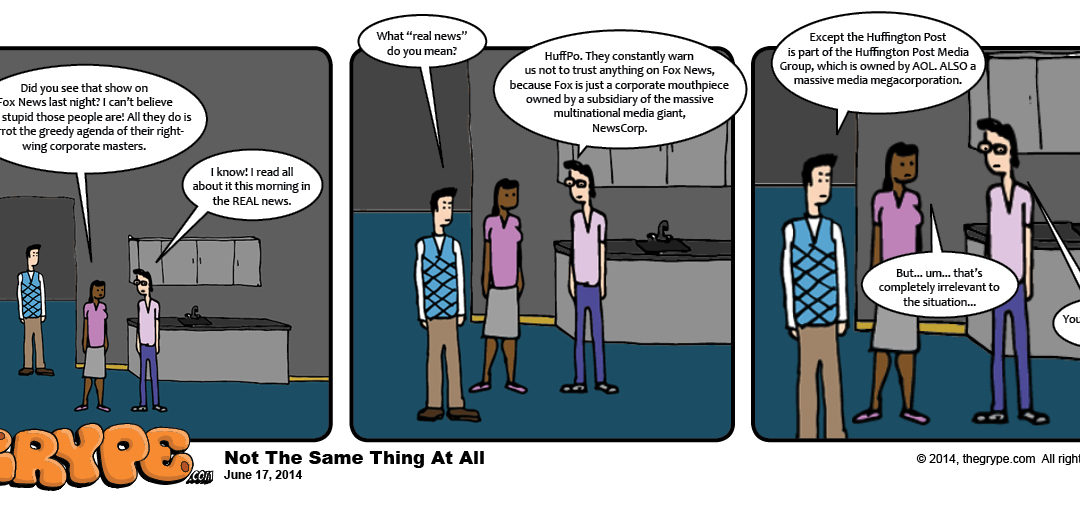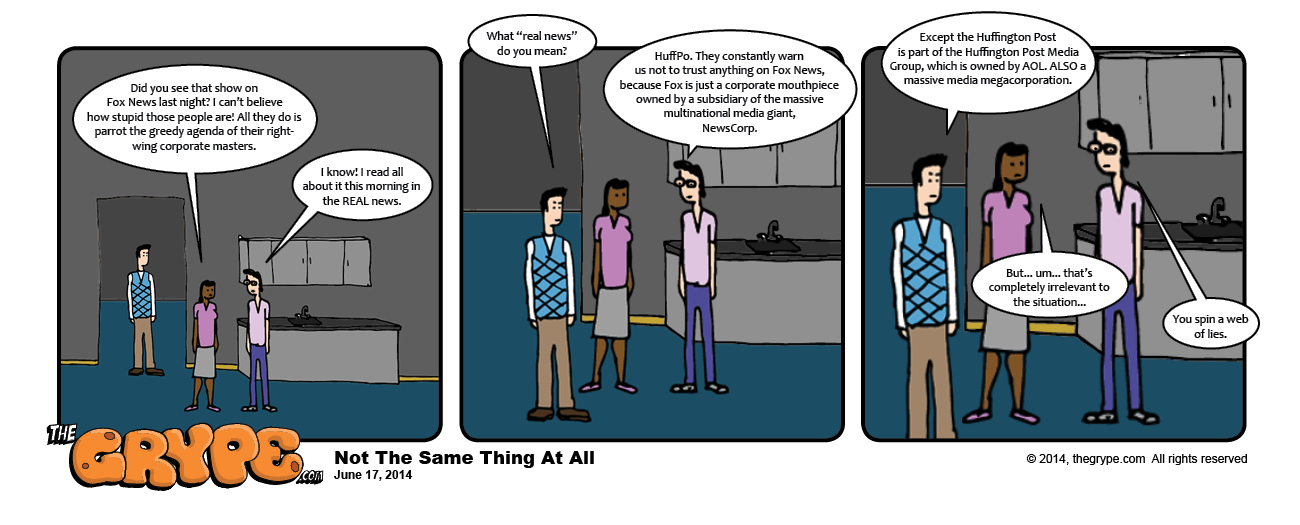So the Walmart of online-media-by-mail, Amazon.com, has now allowed its false “customers come first” mask to slip, revealing the ugly truth: it’s a corporation, and as such is now being pressured by its greedy shareholders to increase its profits (and their dividends) at the cost of its suppliers.
That means they have to negotiate cut-rate pricing with those various suppliers— book publishers, DVD distributors, etc.— so they can up the profit margin on each item they ship. That profit margin is what fills the pockets of the shareholders, who have decreed that they require more pay-back on their stock ownership. Therefore, Amazon.com the COMPANY (not Amazon.com the CORPORATION) is being forced to squeeze everyone— customers, suppliers, shipping services— for more money.
This is a perfect example of the “company versus corporation” dichotemy. Amazon.com the COMPANY has always been willing to settle for a rather modest profit rate for their service as they built their supply centers and expanded their business into new markets. That approach worked extremely well, allowing it to grow into the world’s largest online retailer. All that growth and success made it a very valuable stock, all shares of which continue to be gobbled up by Wall Street sharks the moment they become available. Except— now those sharks have taken control of the business side of things, and are taking advantage of the near-monopoly achieved by Amazon in online book and media sales to demand bigger personal returns on the process. They own the goose that lays golden eggs… so they figure it must be time to start torturing that goose to force it to lay more gold eggs, faster.
The first victim in all this was Hachette, a publishing house that handles about 1,000 titles a year by authors like James Patterson, Malcolm Gladwell, Scott Turow, Robert Galbraith (pen name of J.K. Rowling) and many more. Amazon wants a better deal from Hachette, meaning it wants to pay the publisher less to stock and ship its titles. Hachette has apparently refused to play ball, so Amazon is trying to bully Hachette into lowering its price, or else it’s going to subject many books from Hachette to artificial purchase delays. Hachette titles formerly available for next-day delivery now take 2-5 weeks to ship. Some Hachette titles mysteriously no longer come up in Amazon product searches the way they should. How odd. Upcoming Hachette books, including the next J.K. Rowling/Robert Galbraith mystery “The Silkworm,” are no longer available for pre-order. As a result, Hachette will sell far fewer books. Their sales are being purposely strangled by Amazon.
WTF?
The reasons behind this are even more sinister than one might think. In the Apple e-book case brought by the Department of Justice, publishers were accused of colluding over e-book prices; all involved settled. The judge’s final order in the case, issued in 2013, laid out a schedule for the publishers involved to renegotiate e-book prices with both Apple and Amazon. Hachette is the first publisher to renegotiate, and they won’t cave in to Amazon’s demands. So Amazon is trying to bury their products.
Some people have even begun to walk away from Amazon, as a retailer, because of its dispute with Hachette.
In the words of “The Fault In Our Stars” author and nerdfighter John Green, “The breadth of American literature and the quality of American literature is in no small part due to the work that publishers do, and it’s very unfortunate, in my opinion, to see Amazon refuse to acknowledge the importance of that partnership.”
But wait! There’s a NEW media supplier being targeted by Amazon: Time Warner. Customers trying to pre-order films such as “The Lego Movie” are inexplicably being asked to “sign up to be notified when the item becomes available” (though digital downloads of the movies are still available for purchase through Amazon Instant Video). Pre-ordering of those products— once allowed— has been suspended. Apparently Amazon wants a higher margin on sales of Warner Home Video DVDs, so they are reducing availability of those items through their service— and torpedoing sales of those items— in order to financially strong-arm Time Warner into making them a better deal. It’s apparently the same tactic Amazon is using against Hachette.
The coming weeks will demonstrate whether these tactics allow Amazon to stomp the necks of media suppliers with impunity, or if they merely succeed in further alienating a growing percentage of their customer base.


